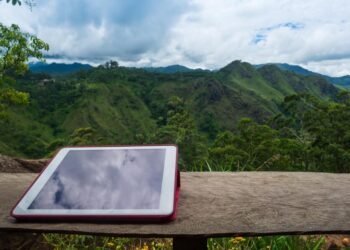Micro Small and Medium Enterprises (MSMEs) are one of the sectors that contribute to the country’s income. Referring to data from the Ministry of Cooperatives and SMEs (2023), around 96.92% of the total workforce in Indonesia works in the MSME sector, which amounts to 86.81 million businesses in the current era of global competition; MSME players face challenges to able to compete with imported products that easily enter Indonesia.
MSME players must answer these challenges by participating in competing on online platforms. The government has identified this problem by encouraging MSME players to be digitized. At least there are five government focuses in encouraging MSMEs to be able to compete on online platforms, namely: Increasing Internet Broadband Access, Program Support for MSMEs, Electronic Payment Support, Expansion of Investment Access, and Ease of Licensing Access.
One of the current obstacles faced by MSME players is the Business License. Many MSME players do not yet have a Business License, which could lead to a potential shadow economy in the future. However, the benefits of obtaining a Business License are significant. For instance, it is a requirement to join UMKM Online. Moreover, the existence of a Business License can enhance the access of MSME players to loan capital and opportunities to compete on online platforms.
The government responded to these obstacles by issuing Government Regulation Number 7 of 2021 concerning the Ease, Protection, and Empowerment of Cooperatives and Micro, Small, and Medium Enterprises. Article 38 of the PP explains that “Business Licensing for Micro, Small, and Medium Enterprises is implemented through an electronically integrated Business Licensing System, which is managed by an Institution that manages electronically integrated business licensing.”
The Central Government and Regional Governments provide guidance and registration for Micro, Small, and Medium Enterprises by identifying and registering Micro, Small, and Medium Enterprises. Through this PP, the Government has also launched a Single License and Facilitation of Standard Certification. The Single License is organized through an electronically integrated Business Licensing System, which includes Business Licensing, Indonesian National Standards, and Halal product guarantee certification.
The government not only facilitates electronic/online license registration, but also provides guidance. Thus, through the Government Regulation, the government aims to facilitate the ease of Business Licenses so that MSME businesses are digitized so that they can compete in online platforms.
In addition, through the Ministry of Cooperatives and SMEs (Kemenkopukm), the government has set several targets for the development of MSMEs, including the number of MSMEs on digital boarding of 24 million in 2023 and 30 million in 2024. In addition, the government also targets as many as 1 million MSMEs to have been onboarded into the e-catalog of the Government Goods and Services Procurement Policy Agency (LKPP).
Until 2022, the number of MSMEs that have been digitized has reached 20,997,131 MSMEs and has increased 17 percent from the previous year. The government’s target is 30 million digitized MSMEs by 2024. Meanwhile, as of December 2023, around 27 million MSMEs have been digitized. Thus, the government, with this condition, should be optimistic about achieving this target. Meanwhile, since the existence of regulations related to ease of doing business (Business Permit), the government is considered successful in achieving its goal of making MSME businesses digitized gradually from year to year.
Referring to the initial objective is associated with. Meanwhile, the MSME sector contributes to the Gross Domestic Product (GDP) of 61%, or IDR 9,580 trillion (Coordinating Ministry for Economic Affairs, 2023). Thus, with the increase in digitized MSMEs every year, the government is considered effective in issuing this policy to encourage the digital economy, especially from the MSME sector that has yet to be officially registered. In the long run, this will certainly reduce the potential shadow economy of MSMEs. This is because MSMEs are legally registered so that they can contribute optimally to digital economic growth.














